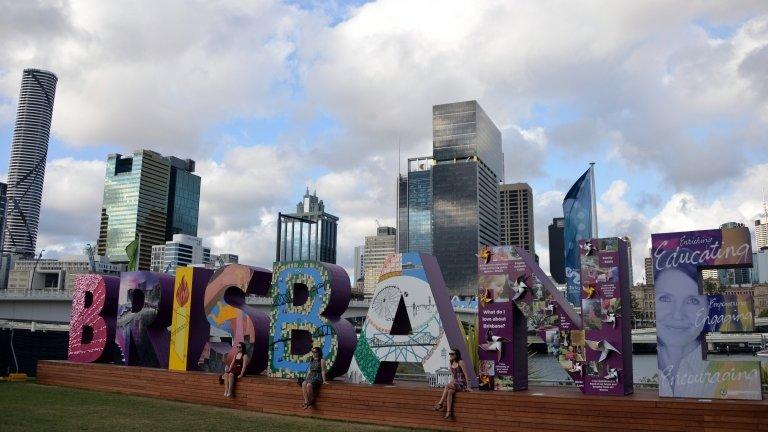Australian banks need more capital to avert crises, Murray report says
- Published
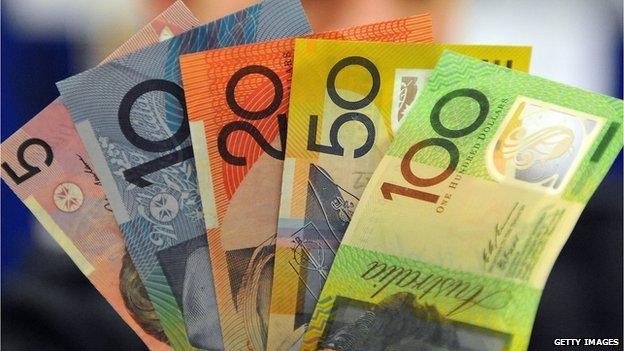
Banks need to be well capitalised to cover potential loan losses, experts say
Australian banks need to hold more capital to be able to survive future financial crises, says a new report.
There should also be minimum education standards for financial advisers, it said.
The report, released on Sunday, also recommended superannuation (pension fund) fees be reduced.
Bank competition, increased capital levels and inefficient taxes were singled out for reform by the Financial System Inquiry report, external.
The 320-page report was headed by the former chief executive officer of the Commonwealth Bank of Australia, David Murray.
The inquiry, launched in 2013 by Treasurer Joe Hockey, was charged with examining how the financial system could be positioned to support Australia's economic growth and to better survive global financial crises.
It has made 44 recommendations relating to the Australian financial system.
It found that: "taxation and regulatory settings distort the flow of funding to the real economy; it remains susceptible to financial shocks; superannuation is not delivering retirement incomes efficiently; unfair consumer outcomes remain prevalent; and policy settings do not focus on the benefits of competition and innovation. As a result, the system is prone to calls for more regulation".
Jobs at risk
Mr Hockey said it was vital that Australian banks were well-capitalised to cover potential loan losses.
"The Murray Inquiry is recommending there be a further look at increasing those levels of capital and that's something that needs to be dealt with appropriately by the regulator," he said.
Mr Murray said even a modest banking crisis would cost as many as 900,000 jobs.
"These crises impose massive costs on economies and societies, and the circumstances that assisted us during the recent global financial crisis will not be present in future crises," he said.
"In the event of a crisis, which will happen again, we want the taxpayers off the hook as far as possible."
The reliance of Australia's big banks on an "implicit government guarantee" should be reduced by requiring banks to hold more capital or more equity and to use financial instruments that minimise the potential need for a taxpayer bailout, said Professor at the Department of Economics at Monash University Stephen King.
Writing for The Conversation website, Prof King said the Murray report recognised that increased capital requirements come with a cost.
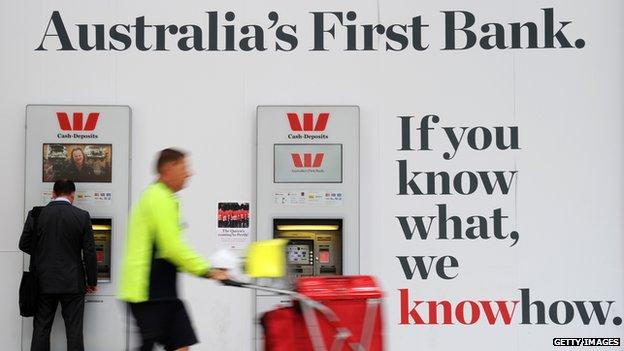
The report's recommendations will be considered by independent regulators
"There will be a cost passed through to bank shareholders and to bank depositors and borrowers. But this cost really reflects the political reality that a large bank cannot be allowed to fail. It simply has Australia following the rest of the world," he said.
The inquiry rejected research commissioned by the Australian Bankers' Association that said Australia's banks were in the top quarter of institutions globally in terms of the amount of capital they hold.
The association has welcomed the report but said a careful analysis of each recommendation was now needed.
Australia's superannuation system holds more than A$1.8tn ($1.5tn, £960bn) in assets, according to the government, and the domestic assets of the nation's banking institutions are worth A$3.5tn.
Several of the inquiry's recommendations, including those on bank capital and the payment system, will be considered by independent regulators, the Reserve Bank of Australia and the Australian Prudential Regulation Authority.
The inquiry's recommendations on taxation issues will be referred to a government White Paper on taxation reform.
The government said it would consult with industry and consumers before making any decisions on the recommendations.
- Published3 December 2014
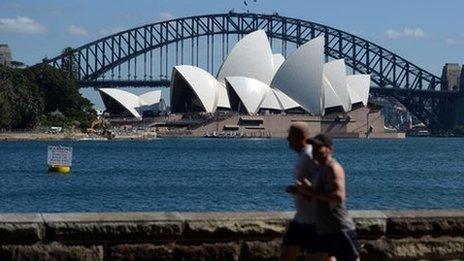
- Published17 November 2014
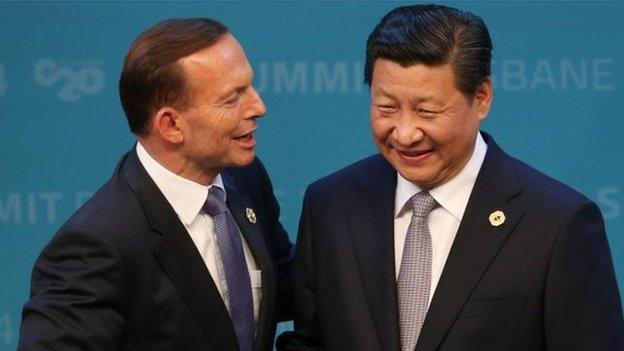
- Published25 November 2014

- Published16 November 2014
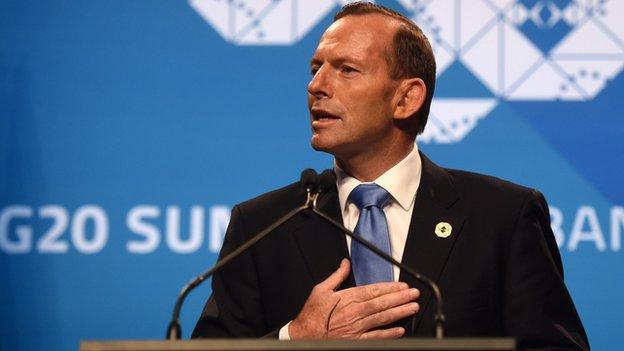
- Published14 November 2014
